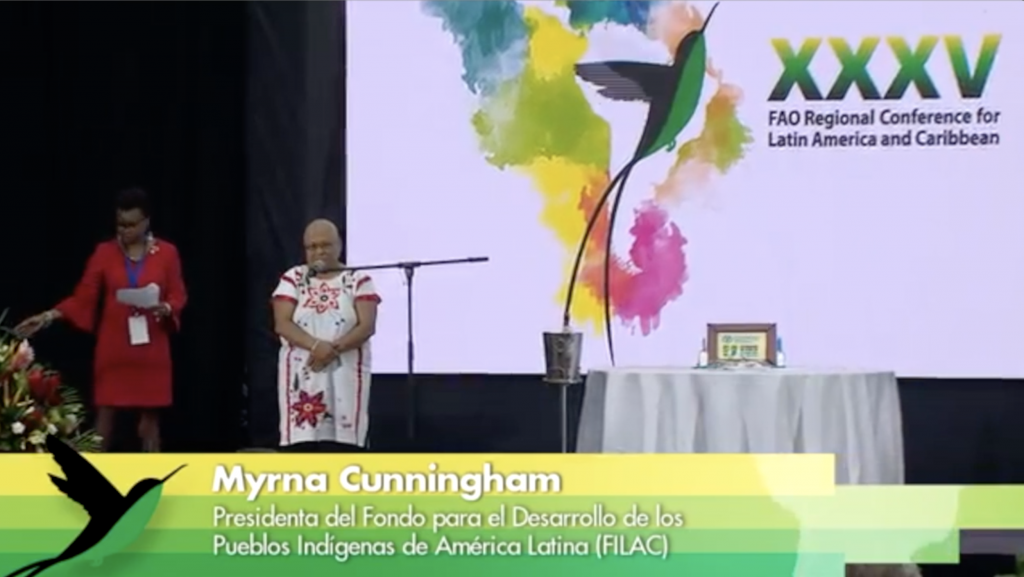Food Sovereignty from the perspective of Indigenous Women: recovering past dialogues to build a better tomorrow.
Dr. Mirna Cunningham – Ceremony of 40 years of FAO representation in LAC. May 14, 2018.
Mirna: Timni Yamni (good afternoon), I greet you in the Miskitu language and I bring you greetings from the grandfathers, grandmothers, young people, women, men of that people who struggle to build a process of autonomy in the context of the restitution of rights.
For the indigenous peoples, our vision of the world is linked to the land, to the territories, to the resources. We have protected the Pachamama (Mother Earth). That is why coming to speak today about the work of the FAO in these 40 years in our region is something very close to us, because it is the United Nations agency that also has the mandate to take care of Pachamama, to ensure that all men and women who live in this Pachamama can really eat, feed ourselves, live well. An important aspect of FAO’s work that has been important in my life has been family farming. When I was invited to be an ambassador for the International Year of Family Farming, I thought, I can’t talk without doing. I went back to make a small farm, where I could plant. And just as I started planting, the rest of my family members also started planting. Now I see my grandson, posting pictures when they come to harvest the beets and the different products of the farm. But the fact of giving me a voice in the FAO has also served to give a voice to indigenous women, to rural women, and this year we are going to be working hard within the UN so that there will be more recommendations focused on supporting the work of rural women. It has helped me to identify all the characteristics of what family farming means. This has been a fundamental aspect that has served to empower families, to empower women, from an integral point of view.
Leadership has been a fundamental aspect of FAO work, and I would like to acknowledge the Director General and what he said to us was: «if there is one aspect in which cultural diversity is very clearly manifested, it is in food, that is why I am committed to cultural diversity, I am committed to working with indigenous peoples, because I am sure that with your knowledge, with your practices you can contribute to eradicating hunger in the world». This message from the Director General has empowered us very much, we indigenous people feel that the FAO is our institution, now the women of the Indigenous Peoples are all campaigning to be able to really contribute to eradicate hunger.
Source: Network of Indigenous Youth of Latin America and the Caribbean

